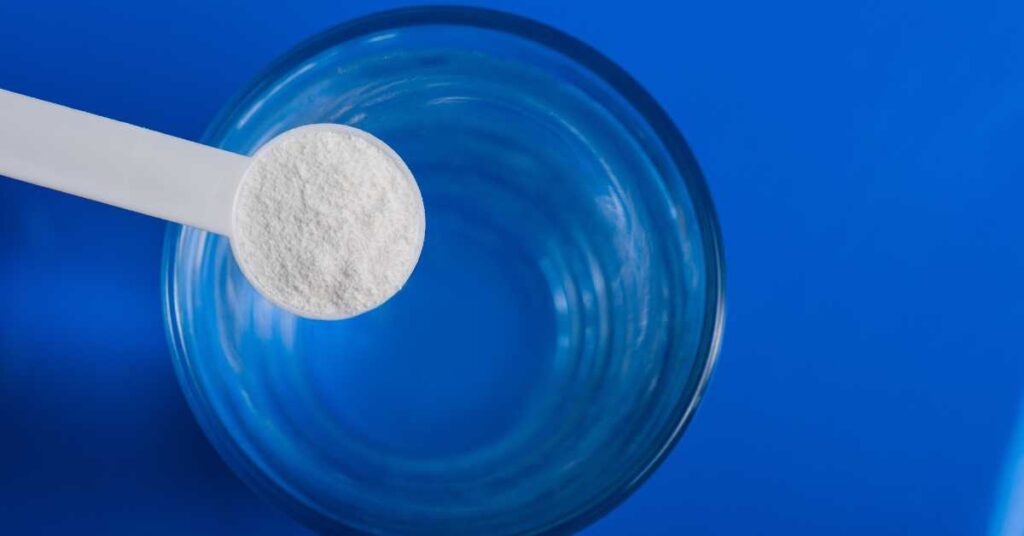When it comes to athletic performance, fueling your body with the right nutrients is essential. Proper nutrition not only supports your workouts but also aids in recovery and overall athletic success. Among the key components of an effective nutrition plan, pre-workout nutrition plays a significant role.
By optimizing your macronutrient intake before exercise, you can enhance energy levels, reduce muscle breakdown, and improve focus and endurance. In this article, we will explore the world of pre-workout nutrition and provide you with valuable insights on how to optimize your macronutrient intake for maximum athletic success.
Understanding Macronutrients
Before we dive into the specifics of pre-workout nutrition, it’s crucial to understand the role of macronutrients in fueling your body. Macronutrients include proteins, carbohydrates, and fats, each serving a unique purpose.
Proteins are essential for fueling muscle repair and growth. They provide the amino acids necessary for rebuilding damaged muscle fibers and facilitating recovery. Consuming an adequate amount of protein before a workout can help protect your muscles from excessive breakdown during intense exercise. Good sources of pre-workout protein include lean meats, poultry, fish, eggs, dairy products, and plant-based options like tofu or lentils.
Carbohydrates are your body’s primary source of energy. They are vital for providing the fuel needed for intense workouts. Consuming carbohydrates before exercise can help maintain glycogen stores in your muscles and liver, which are essential for sustained energy during physical activity. Opt for complex carbohydrates like whole grains, fruits, and vegetables to ensure a steady release of energy.
Fats also play a role in pre-workout nutrition, albeit to a lesser extent. While fats are a concentrated source of energy, they are not the primary macronutrient for fueling intense exercise. However, including a small amount of healthy fats in your pre-workout meal can provide satiety and help regulate blood sugar levels. Opt for sources like avocados, nuts, seeds, and olive oil.
The Role of Pre-Workout Nutrition
Effective pre-workout nutrition offers several benefits that can enhance your athletic performance. By fueling your body adequately before exercise, you can experience the following advantages:
Enhanced energy levels: Consuming the right macronutrients before a workout provides the necessary energy to perform at your best. Carbohydrates, in particular, supply glucose, which is easily accessible by your muscles for quick energy production.
Reduced muscle breakdown: Intense workouts can cause muscle breakdown, leading to muscle damage and hindered progress. Consuming protein before a workout helps provide amino acids for muscle repair and reduces the extent of muscle breakdown during exercise.
Improved focus and endurance: Proper pre-workout nutrition can improve mental focus and delay the onset of fatigue. Carbohydrates provide the necessary glucose for your brain, while protein aids in the production of neurotransmitters involved in focus and concentration.
Macronutrient Ratios for Pre-Workout Nutrition
The optimal macronutrient ratio for pre-workout nutrition can vary depending on factors such as the intensity and duration of your exercise, personal preferences, and individual goals. However, there are some general guidelines to consider:
Protein requirements: Aim to consume around 20-30 grams of protein before a workout. This amount is sufficient to stimulate muscle protein synthesis and support muscle recovery. Consider including lean sources such as chicken, fish, Greek yogurt, or protein shakes.
Carbohydrate intake: Consume around 30-60 grams of carbohydrates before a workout, depending on the intensity and duration of your exercise. This will provide enough fuel for sustained energy. Opt for complex carbohydrates like whole grain bread, oats, or fruits.
Appropriate fat consumption: While fats are not the primary focus of pre-workout nutrition, including a small amount can aid in satiety and help regulate blood sugar levels. Aim for a moderate intake of healthy fats, such as a tablespoon of nut butter or a small handful of nuts.
Timing and Meal Composition
In addition to macronutrient ratios, the timing and composition of your pre-workout meal are crucial. Consider the following tips to optimize your pre-workout nutrition:
Timing: Allow sufficient time for digestion before starting your workout. Ideally, consume your pre-workout meal 1-3 hours before exercise. This timeframe allows for proper digestion and ensures that the nutrients are readily available for energy production during your workout.
Meal composition: Opt for a balanced meal that includes protein, carbohydrates, and fats. Consider whole foods that are easily digestible, such as a chicken breast with brown rice and steamed vegetables. If you prefer a smaller snack, a protein shake with a banana can also provide the necessary nutrients.
Supplements for Pre-Workout Nutrition
While proper nutrition from whole foods should be your primary focus, some supplements can enhance your pre-workout nutrition. However, it’s important to note that supplements are not a substitute for a balanced diet. Here are a few supplements that are commonly used in pre-workout nutrition:
Creatine: Creatine is a naturally occurring compound found in small amounts in meat and fish. Supplementing with creatine has been shown to improve strength and power output during intense exercise.
Beta-Alanine: Beta-alanine is an amino acid that can enhance endurance performance by reducing the buildup of lactic acid in your muscles. This can delay fatigue and allow you to perform at a higher intensity for longer periods.
Caffeine: Caffeine is a popular stimulant that can improve focus, alertness, and exercise performance. Consuming caffeine in moderate amounts before a workout can provide a boost in energy and enhance endurance.
Remember to consult with a healthcare professional or sports nutritionist before incorporating any supplements into your routine.
Hydration and Pre-Workout Nutrition
Hydration is a crucial aspect of pre-workout nutrition. Proper fluid intake ensures optimal performance and helps prevent dehydration. Here are some tips for hydrating effectively before a workout:
Importance of hydration: Adequate hydration supports blood flow, regulates body temperature, and helps maintain optimal muscle function. Proper fluid balance is crucial for performance and overall well-being.
Electrolytes and sports drinks: If you are engaging in prolonged and intense workouts, consider consuming a sports drink that contains electrolytes. Electrolytes, such as sodium and potassium, help maintain proper fluid balance and support muscle function.
Common Mistakes to Avoid
While understanding the importance of pre-workout nutrition is crucial, it’s also essential to avoid common mistakes that can hinder your performance. Here are a few pitfalls to be aware of:
Overeating before workouts: Consuming an excessive amount of food before exercise can lead to discomfort, sluggishness, and impaired digestion. Stick to moderate portions and give yourself ample time to digest before hitting the gym.
Relying solely on supplements: While supplements can enhance your performance, they should not replace a well-balanced diet. Place the primary focus on whole foods to ensure you’re obtaining all the necessary nutrients for optimal performance.
Neglecting hydration: Hydration is often overlooked, but it is a critical aspect of pre-workout nutrition. Failing to hydrate adequately before exercise can lead to dehydration, decreased performance, and increased risk of injury.
Conclusion
Optimizing your pre-workout nutrition through the proper intake of macronutrients can significantly impact your athletic performance. By fueling your body with the right combination of proteins, carbohydrates, and fats, you can enhance energy levels, reduce muscle breakdown, and improve focus and endurance during exercise.
Remember to personalize your macronutrient ratios based on your individual goals and consult with a registered dietitian or sports nutritionist for personalized advice. With the right pre-workout nutrition strategy, you can maximize your athletic potential and take your performance to new heights.
FAQs (Frequently Asked Questions)
Q1: Can I work out on an empty stomach?
A: Working out on an empty stomach can be a personal preference. However, consuming a small meal or snack before a workout can provide fuel for optimal performance and prevent muscle breakdown.
Q2: Is it necessary to consume protein before a workout?
A: While protein consumption before a workout is not mandatory, it can provide amino acids for muscle repair and reduce muscle breakdown during exercise. Including protein as part of your pre-workout nutrition can be beneficial, especially for longer and more intense workouts.
Q3: How much time should I allow between eating and exercising?
A: It is generally recommended to allow 1-3 hours between your pre-workout meal and exercise. This timeframe allows for proper digestion and ensures that the nutrients are readily available for energy production during your workout.
Q4: Can I have a high-fat meal before working out?
A: While including a small amount of healthy fats in your pre-workout meal is acceptable, it’s generally recommended to focus on carbohydrates and protein for quick energy and muscle repair. Higher fat meals can take longer to digest and may cause discomfort during exercise.
Q5: Are there any specific foods to avoid before a workout?
A: It’s best to avoid foods that are high in fat, fiber, or that may cause gastrointestinal distress. These can include fatty meats, greasy foods, high-fiber vegetables, and spicy foods. Stick to easily digestible meals or snacks that provide a balance of protein and carbohydrates.
Remember, pre-workout nutrition is highly individualized, and it’s important to listen to your body and experiment with different approaches to find what works best for you.
Disclaimer: When it comes to sport nutrition, always seek professional guidance and advice from medical professionals, nutritionists and other relevant professionals who will be in a position to better address specific concerns or issues related to your individual situation. In no event shall we be liable for any direct, indirect, incidental, special, or consequential damages arising out of or in connection with your use of this website or the content provided herein.







